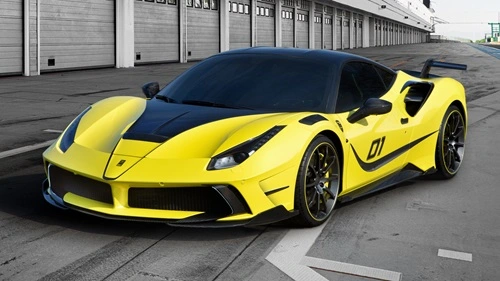No, it is not inherently illegal to modify a Ferrari in the United States. However, there are legal restrictions and potential risks involved with certain modifications. These depend on federal and state laws, as well as Ferrari’s specific intellectual property rights and warranty policies.
Understanding Vehicle Modification Laws
Vehicle modifications in the U.S. are regulated to ensure safety, environmental compliance, and adherence to intellectual property laws. While customizing a Ferrari is permissible, certain modifications may run afoul of these regulations:
1. Safety Standards:
- Federal Motor Vehicle Safety Standards (FMVSS), enforced by the National Highway Traffic Safety Administration (NHTSA), mandate that all vehicles meet specific safety requirements. Modifications affecting critical systems like brakes, airbags, or lighting must comply with these standards.
2. Emissions Compliance:
- The Environmental Protection Agency (EPA) regulates vehicle emissions. Modifications to the exhaust system, engine tuning, or catalytic converters that increase emissions beyond legal limits can result in hefty fines. California, for example, enforces strict emissions standards under the California Air Resources Board (CARB).
3. Noise Ordinances:
- Upgrades to exhaust systems that increase noise levels may violate local and state noise laws. Many states cap decibel limits for vehicles, particularly high-performance cars.
4. Intellectual Property Considerations:
- Ferrari enforces strict policies regarding unauthorized modifications that alter the vehicle’s branding or design. This includes issues related to body kits, logos, or rebranding efforts that might dilute the Ferrari trademark.
Ferrari’s Policies on Modifications
Ferrari has a reputation for strictly enforcing its intellectual property rights and maintaining the exclusivity of its brand. Here’s how Ferrari approaches modifications:
1. Warranty Voids:
- Modifications to the vehicle’s engine, software, or critical systems typically void Ferrari’s factory warranty. Owners should review warranty agreements before undertaking major changes.
2. Intellectual Property Enforcement:
- Ferrari has taken legal action against individuals and businesses that make unauthorized modifications. For instance, in 2021, Ferrari sued a German tuner for creating an unauthorized replica of a Ferrari model using modified parts.
3. Authorized Modifications:
- Ferrari allows certain customizations through its official Tailor Made program, where owners can personalize their cars within the bounds of Ferrari’s guidelines. These modifications retain compliance with legal and brand standards.
Popular Ferrari Modifications and Their Legal Implications
1. Exhaust Systems:
- While aftermarket exhaust systems are common for enhancing sound and performance, they must comply with state noise and emissions laws. Non-compliant systems can result in fines or failed inspections.
2. Performance Tuning:
- Engine remapping or ECU tuning for increased horsepower is legal if emissions standards are not violated. However, these changes typically void the warranty.
3. Cosmetic Changes:
- Adding body kits, custom paint, or interior modifications is generally legal, provided they do not infringe on Ferrari’s trademarks or safety requirements.
4. Wheels and Suspension:
- Upgrading wheels and lowering suspension is legal, but modifications must not compromise safety. Extreme changes could violate FMVSS.
Risks of Illegal Modifications
- Fines and Penalties: Non-compliant modifications can lead to fines, impoundment, or failed emissions tests.
- Warranty Loss: Ferrari’s factory warranty does not cover unauthorized modifications.
- Resale Impact: Overly customized Ferraris may lose value in the resale market, particularly among purists and collectors.
- Legal Action: Ferrari is vigilant about protecting its brand and may pursue legal action against modifications that infringe on its trademarks.
FAQs
Q1. Can I modify my Ferrari’s exhaust system?
Ans: Yes, but the exhaust must comply with state and federal emissions and noise regulations. In California, for example, aftermarket exhaust systems must be CARB-certified.
Q2. Will modifying my Ferrari void its warranty?
Ans: Most modifications, especially to the engine or software, will void the factory warranty. Cosmetic changes may not, but it’s best to check with Ferrari.
Q3. Can Ferrari sue me for modifying my car?
Ans: Ferrari is unlikely to sue individual owners for personal modifications but may take action against businesses or individuals creating replicas or infringing on its trademarks.
Q4. Are body kits legal on a Ferrari?
Ans: Yes, body kits are legal if they meet safety standards and do not infringe on Ferrari’s intellectual property rights.
Q5. Can I lower my Ferrari’s suspension?
Ans: Lowering your suspension is legal, but extreme changes must not compromise safety or roadworthiness. Some states may also have regulations on vehicle height.


